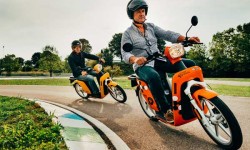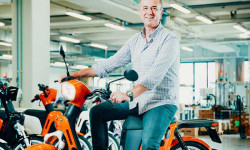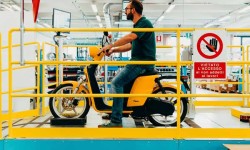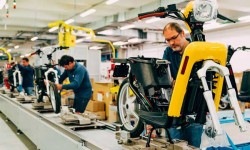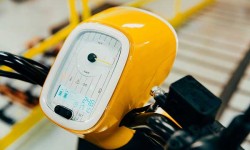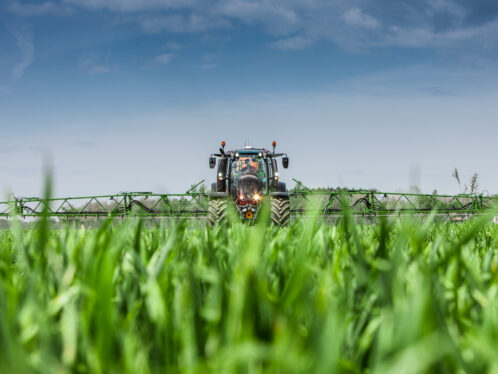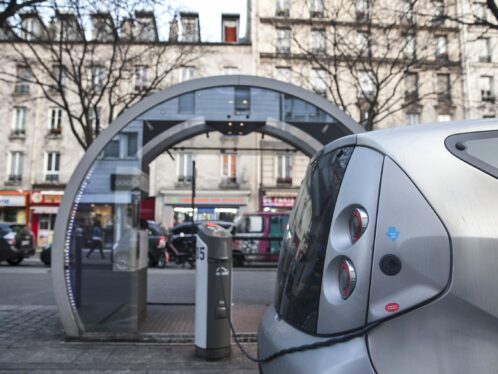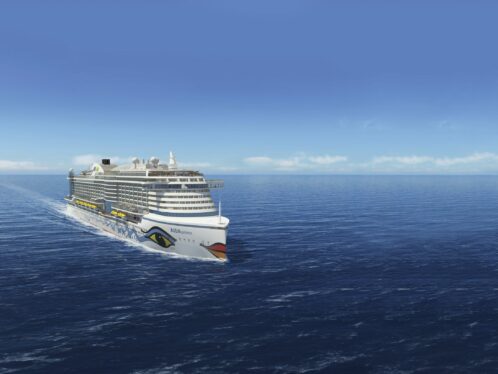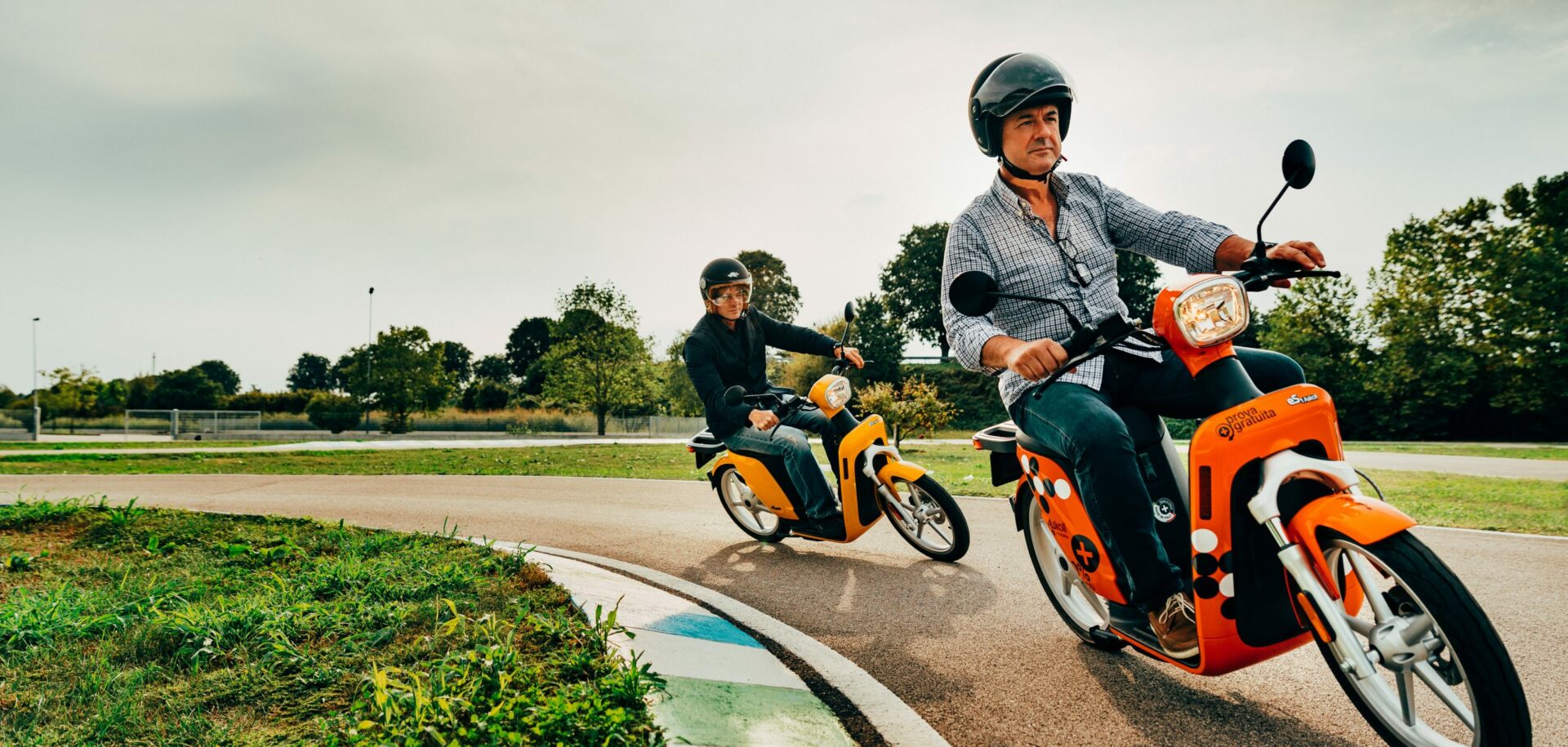
Green glamour on two wheels
When Gregory Peck squired Audrey Hepburn around Rome on a Vespa in Roman Holiday, the 1953 film forever linked scooters with style and glamour. Italian scooters may still be stylish, but they are not environmentally relevant today except for one.
Askoll’s new eS1 electric scooter, and its companion eB1 electric bicycle, are the only purpose-built all-electric urban vehicles, designed, developed and produced in Italy. They are just as sleek as their petrol-propelled predecessors, but they are far less costly to operate, friendlier to the environment and even more fun to drive.
Vicenza-based Askoll, an Italian company specializing in small electric motors, took a big step by launching the eS1 and eB1 in April 2015. This was no greenwashing afterthought. Askoll was founded in 1978 when Elio Marioni, a manager at an Italian home appliance company, could not persuade his superiors to invest in the technology he had developed to produce small, quiet, energy-efficient motors. So he went into business for himself, producing such motors for aquarium pumps.
Askoll became the leader in this niche business, and in 1986 it conquered the home appliance sector, quickly becoming the market leader there too. Its efficient motors practically define industry standards in Europe, and today 99 percent of white appliances use Askoll technology in their motors.
In late 2011, Marioni turned his attention to urban mobility. Askoll’s almost 900 patents attest to its know-how in the design and performance of small motors, so the new direction was a natural extension of this knowledge. The new division EVA (Electric Vehicle Askoll) was created to produce electric bicycles, scooters and automobiles that would address urban issues such as traffic, noise, pollution and congestion. The upshot would be more liveable cities and cost savings for consumers.
Paolo Trabuio, project manager for EVA, was an early hire, invited to spearhead the scooter project based on his 23 years of experience in this sector. “I was attracted by the idea of creating something new from scratch – a vehicle designed to be electric, clean, easy and quiet,” he says. In his view, others who have tried to develop electric vehicles are more intent on modifying the status quo than creating something innovative, and a few would-be competitors don’t really believe in electric at all. “They are not true believers,” he says. “The results are vehicles born wrong, fated to be overpriced and unsuccessful.”
Industry experts cite the main obstacles facing electric vehicles today as price, range, charge time and service. Askoll’s present range of bikes and scooters, and the automobiles planned for introduction in 2016, have been conceived to overcome all these hurdles. Askoll’s expertise is in small, low-cost motors, and it produces all the critical components of its new vehicles in-house to further contain costs: planning, engineering, production, sourcing, quality control and distribution.
Bike, scooter and car driving ranges are all about 100 kilometres, more than five times the distance an average urbanite travels per day in Europe. Bike speed is about 25 kilometres per hour, while scooter speed is about 45 kilometres per hour, more than enough for city driving.
Recharging the bike or scooter is handled ingeniously. The battery can be extracted and charged at home, using a normal domestic plug. Bike batteries weigh less than two kilograms and the scooter batteries about eight kilograms, so the job is easy.
As for customer assistance, Askoll is setting up in-service centres and home assistance for its scooters. With direct sales through a network of company-owned stores, after-sales support is equally direct and immediate. “This element is already tested and active,” Trabuio says. The company controls costs by planning ahead. The scooters are designed for minimal need for maintenance, and spare parts can be ordered directly from a catalogue.
Askoll is confident that the economic and environmental advantages of the eB1 and eS1, not to mention their Italian design (Trabuio describes it as “a colourful classic with a touch of retro”), will persuade customers all over Europe to electrify their urban commutes.
“Our immediate priority is to sell well in Italy and eventually in the EU,” he says. “Longer term, we are always working to create a range of vehicles aimed at the needs and requirements of customers. As better solutions become available, I am convinced that Askoll will be the first to bring them to market.”
Customized deep groove ball bearings
Askoll had several requirements for the deep groove ball bearings in its eS1 electric scooter. One was to keep costs down by using standard bearings. But there were issues of heat (caused by a bearing speed of up to 8,000 r/min) and friction. So SKF worked with the team at EVA to customize the ball bearings for the eS1. They found a way to control the heat generated, similar to the solutions developed when they were working together on motors for the appliance industry.
The result is a cost-effective bearing that operates with low friction and accommodates elevated temperatures without reduction in durability and performance.
Having worked with SKF in the past, eS1 project manager Paolo Trabuio welcomed the opportunity to continue the relationship. “SKF has always given us a positive response,” he says. “So we had a guarantee in working with them on this project.”


